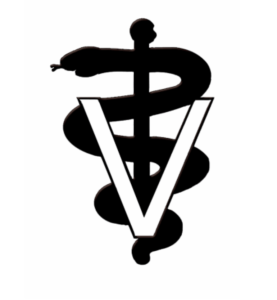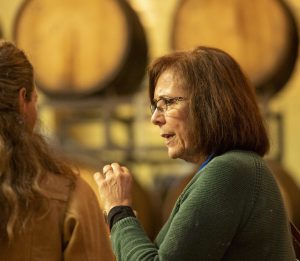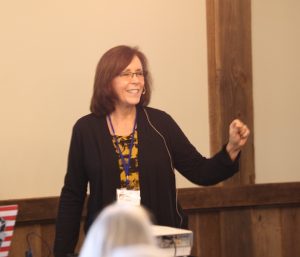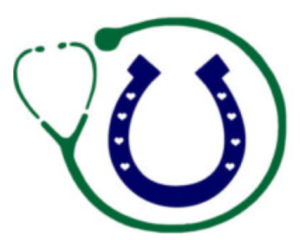Editor’s Note:
To benefit our equines, tasks are often performed by specialized individuals: farriers, equine dentists, and veterinarians. For those who can afford more, there are nutritionists, saddle fitters, trainers, chiropractors, and body workers. There are acupuncturists, equine scientists and researchers.
 How is the horse best served by this array of talented workers? Often horse owners can feel empowered, educated, and inspired by the help provided. But we may also feel lost, humbled, overwhelmed, and underserved.
How is the horse best served by this array of talented workers? Often horse owners can feel empowered, educated, and inspired by the help provided. But we may also feel lost, humbled, overwhelmed, and underserved.
At Cayuse Communications, we’re interested in a discussion around the merits and hazards of hiring professional help. As part of this conversation, we consider the relationship between veterinarians, their human clients, and their equine patients.
Read Amy Skinner’s Vet Your Vet
We hear from Dr. Sheryl King, the 2021 Keynote Speaker at the Best Horse Practices Summit. King is professor emeritus of Southern Illinois University and one of the most popular presenters at the inaugural Summit. Dr. King was elected a Fellow of the Equine Science Society in 2009, an Associate in the Fifty Year Horse Society, an SIU Outstanding Scholar and Faculty Service Award recipient. She has authored many scientific research publications as well as general horse articles and has spoken on horse management topics on five continents.
 Dr. King writes:
Dr. King writes:
I am not a veterinarian, although I carry the title of doctor. As a professional equine scientist who has earned the title of Doctor (PhD), I am sometimes mistaken for an equine veterinarian. Although our expertise and talents overlap, I have never impersonated a veterinarian. However I know veterinarians that impersonate equine scientists. And farriers. And trainers. And physical therapists.
I consider myself as highly educated as a veterinarian, although in ways that are critically different. I have studied, conducted research and taught Equine Science, covering a diverse swath of equine subject matter, for over 35 years. My colleagues – hundreds across the country – are also highly educated in many things equine. For those of us who teach, we have a wide range of general knowledge and most equine scientists have a specialty field. Examples include nutrition and forage management, exercise physiology and fitness, reproduction and growth, behavior and training, genetics and molecular biology, and herd health and management.
Studying animal physiology put me in the classroom with many aspiring and practicing vets. Several were close personal friends. I have been taught by some excellent veterinarians and I, in turn, have taught vets and students who later became vets. I have collaborated with vets as research partners and business partners. I have dated veterinarians.

Dr. Sheryl King delivers keynote address
I have served with vets on state and national boards and I have developed deep admiration for some. Foremost among them is the late Dr. Dean Scoggins, equine extension veterinarian for the veterinary school at the University of Illinois, who introduced me to the wonderful world of natural horsemanship.
Some veterinarians I greatly admire. There are many about whom I am quite ambivalent. A few I truly dislike.
I have disagreed with vets on issues of science, management, medicine, and ethics. Some took this well and others not so well. A few were downright rude. I remember being introduced to a particular veterinarian who responded to my title by saying, “Aha, one of those people who knows an awful lot about very little,” revealing the unmistakable mark of hubris.
Hubris is an impediment to learning and growing.
Among my students, many who learn and flourish most are the ones that come with very little background in horses. They know that they don’t know. I have found that those with gobs of experience around horses are sometimes the most resistant to learning – or unlearning or relearning. They don’t know what they don’t know. A friend who leads equine rescue clinics has said that among the various first-responders – firefighters, police, veterinarians, that it is the veterinarians who are the most challenging to reach.
Hubris is a handicap. Don’t let it make you blind.
What, exactly, is my point here?
 Just as we find in any walk of life, in the vocation of Veterinary Medicine, there are good vets, bad vets, and there are vets who think they are good. There are vets open to learning and willing to admit their limitations, and there are ones who are not. Our job as animal caretakers is to find the good vets – ones possessing the combined skills of observation and diagnosis as well as treatment and animal handling (And don’t forget that humans are animals, too). Then we must establish a rapport and reciprocal trusting relationship with our vet. That kind of relationship cannot develop if one side considers themselves superior.
Just as we find in any walk of life, in the vocation of Veterinary Medicine, there are good vets, bad vets, and there are vets who think they are good. There are vets open to learning and willing to admit their limitations, and there are ones who are not. Our job as animal caretakers is to find the good vets – ones possessing the combined skills of observation and diagnosis as well as treatment and animal handling (And don’t forget that humans are animals, too). Then we must establish a rapport and reciprocal trusting relationship with our vet. That kind of relationship cannot develop if one side considers themselves superior.
When we horse owners seek information, input, and professional advice about your horses, reach out to those who are best educated and positioned to give good information and advice. Sometimes that is not a veterinarian.
Learn more about the Equine Science Society here.
Related Articles:
First Aid Essentials: What to Know and What to Have
Podcast Episode: What Horses & Riders Need
Thank you so much for sharing this information. I loved it all and enjoyed your lovely way of writing. I learned much….I didn’t know that I didn’t know! LOL. Thanks again and be blessed.